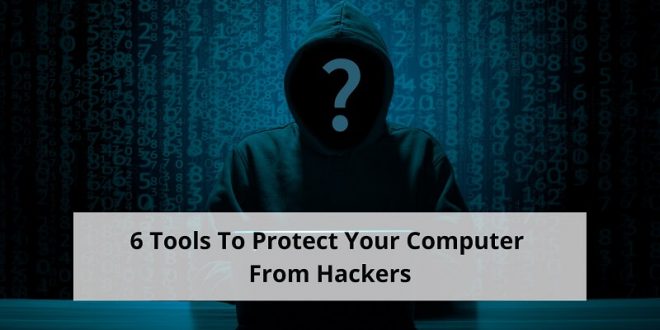In this article, I have listed the 6 tools to protect your computer from hackers. So keep reading.
In the age of the internet, it is nearly impossible to go about your daily business offline. We need a secure computer if we want to shop, send a report, or file a leave application. But, in a world where 6.85 million accounts get hacked using spyware, malware, and ransomware each year, maintaining security is not a cakewalk.
Today, every business is moving online in search of better market opportunities. Hackers are also using advanced ways to hack into systems simultaneously.
So, what is the solution to that? Can you protect your computer from these creepy cybercriminals?
Well, of course, you can. Integrate the following six tools to turn your computer into an unbreachable fortress.
Six Tools To Protect Your Computer:
Get an SSL Certificate
To have a secure device, you need to buy an SSL certificate to transmit data between two computers through encryption safely. While transferring data, it gets passed through various computers.
Without SSL, anybody can see your decrypted data and use credit/debit card and bank details to their advantage.
How Does It Work?
SSL encryption begins with a handshake where both server and client-side agree to communicate and share public keys.
The next step is the session key generated, which then encrypts and decrypts all the information further. At the beginning of every session, a new session key gets generated.
After that, SSL ensures that the website on the server-side of communication is authentic.
In the final step, SSL ensures that the message is the same as the transferrer intended to send and is unaltered.
Why Do We Need It?
An SSL certificate protects sensitive data from the eyes of cybercriminals. Its absence means all the customer data and website information is vulnerable to susception.
Install A Firewall
Much like an SSL certificate, a firewall protects your overall computer from hackers and cybercriminals.
It does not allow any suspicious outsider to gain access to your files and manipulate them.
Moreover, it does not allow unauthorized access and restricts you from accessing websites with potential malware or spyware.
If you already have it installed, here is how you can turn it on:
- Click on the start menu.
- Enter the term “Firewall” in the search bar.
- Hit the Windows firewall option.
- Turn it to “On.”
- Also, ensure that the firewall notification tab is also set to “On” so that you can receive notifications.
Create A Data Backup
Everyone knows the importance of backing up to protect computer data from getting lost or stolen but, not many take it seriously.
The fact is that hard drives don’t last forever. Almost 20,000 hard disks fail every day in the United States.
Thus, backing up your data on a hard drive won’t make you 100% safe. You need cloud storage to keep your files protected.
Cloud-based storage also gives you remote access to your information from anywhere, which is why it is the most reliable option.
Maintain A Password Hygiene
All these tech gurus have been telling users to use a secure password for their computer but, not many seem to take their advice seriously.
Today most accounts have passwords that go like “12345” or “123abc,” which is so easy to guess for a hacker.
A general rule of thumb while writing a password is using a blend of symbols, letters, and numbers.
The passwords should be long and strong without using addresses, phone numbers, and names in them.
Every account must have a different password that is in no way identical to any other password.
Software Updates Should Not Be Overlooked.
Though software updates may not sound like such a deal, hackers are always looking for systems having outdated security patches that are easy to breach.
To protect the device(s) such as a desktop or a mobile phone, you must update it regularly.
Regular updates contain security patch fixes, bug fixes, and new codes to tackle the ever-evolving hacking system.
Moreover, always keep “Automatic windows update” to “On” so that your computer can automatically update itself whenever a software update arises.
Employ Trusted Web Browsers.
Web browsers play a crucial role in determining whether your information is safe or not.
Google Chrome, Mozilla Firefox, and Safari are some of the most secure browsers we can use.
These browsers have a built-in security system that restricts your access to unauthorized websites and prevents hackers from creeping into your system.
You can improve your browser security even further by altering the browser settings in the settings tab.
To Conclude
In 2021, it is impossible to live without computers, which is why keeping them safe has become such a big challenge.
These days, it isn’t easy to cope with the fast-moving world if someone does not have access to computer technology.
Thus, appropriate security is inevitable. Therefore, follow the six tips given above and protect your system from the wrath of cybercriminals.
 Free Web Resources , psd, mockups, & web templates Best WordPress Themes & Best Html Templates
Free Web Resources , psd, mockups, & web templates Best WordPress Themes & Best Html Templates








